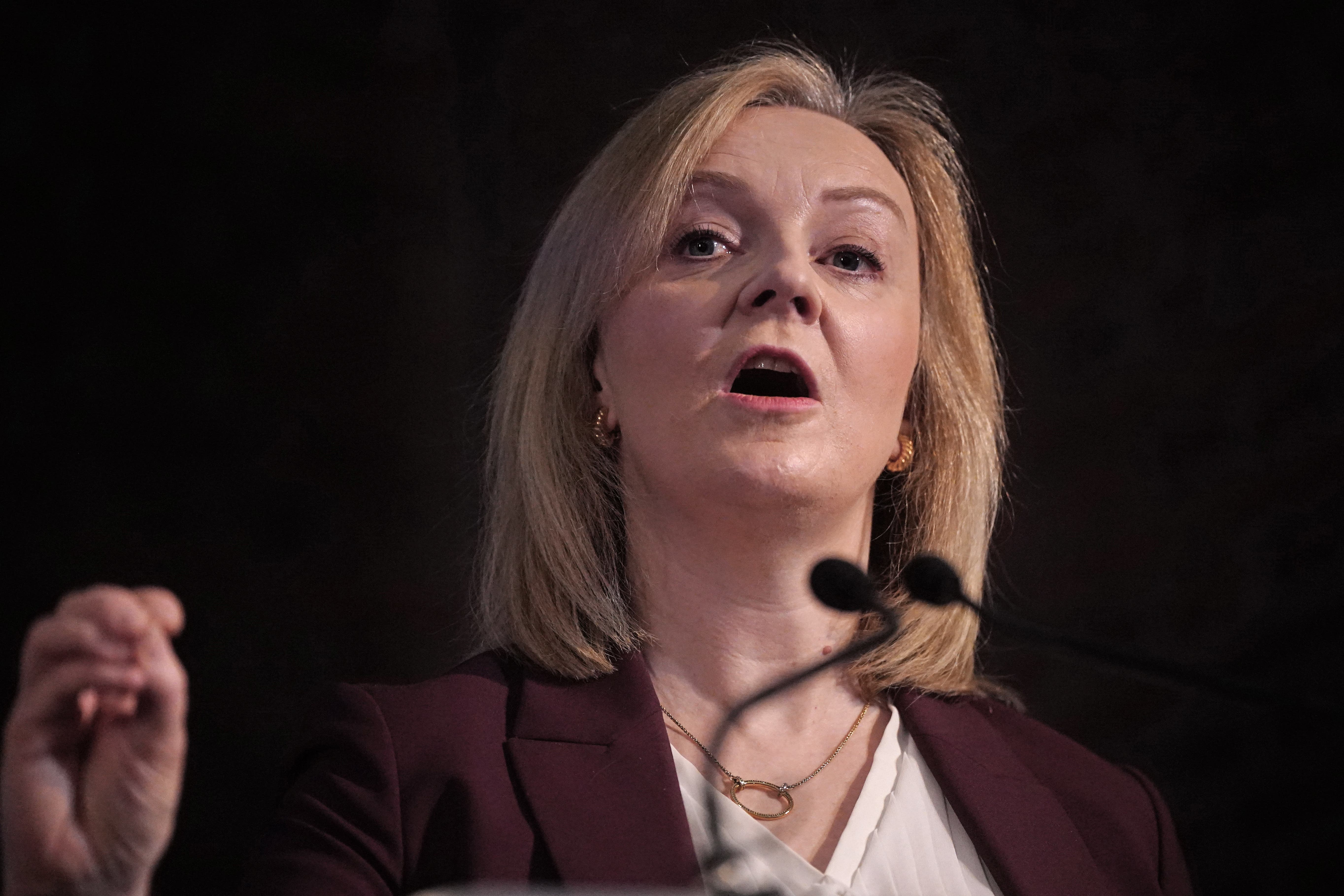Liz Truss bid to reform transgender law runs out of time after MPs’ filibuster
Tory backbenchers blamed Labour for avoiding a debate on the Bill, but it is understood some Tories were asked to prolong their speeches as well.

Liz Truss’s attempt to ban transgender women from female-only spaces will not be debated after MPs “talked out” her proposal.
The Commons was due to debate the former prime minister’s proposed legislation on Friday, which would also have barred transgender women from participating in women’s sports and stopped children attempting to change their sex.
But MPs spent five hours debating two other proposals from backbench MPs, meaning they ran out of time to debate Ms Truss’s Bill.
Both Ms Truss and her allies blamed Labour for filibustering the Bill, saying the party has “no interest in safeguarding children against extreme trans ideology”.
But the PA news agency understands that some Conservative MPs had been asked to prolong the earlier debates in an effort to run down the clock.
In the Commons, Conservative backbencher Richard Fuller insisted that this was not the case, using a point of order to say it was only the Labour Party that was trying to talk out the Bill.
Non-statutory guidance gives too much latitude to extremist ideologues determined to use any loopholes available to promote their dangerous agenda
In one of the earlier debates, on the Animal Welfare (Import of Dogs, Cats and Ferrets) Bill, more Conservative MPs than Labour MPs spoke, although Labour members provided the longest speeches.
These included a 30-minute speech from West Lancashire MP Ashley Dalton and a 35-minute contribution from shadow environment secretary Steve Reed.
Accused by Tory backbencher Sally Ann Hart of trying to “talk out” the Bill, Mr Reed denied this, saying the subject was “important”, to cries of “rubbish” from the Conservative benches.
Deputy speakers Dame Eleanor Laing and Sir Roger Gale repeatedly asked MPs to restrict their remarks to the subject of the Bill, saying they were straying into other areas.
After four hours debating the Animal Welfare Bill, MPs spent another hour debating Labour MP Sarah Champion’s Public Procurement (British Goods and Services) Bill, leaving no time for Ms Truss’s proposals.
Reacting to her Bill running out of time, Ms Truss also laid the blame with the Labour Party, saying the party cared “more about ideology than the protection of children”.
In a statement, she said: “It is vital that we legislate to safeguard single-sex spaces and prevent children from making irreversible decisions about their bodies.
“These policies have popular support – and legislation is required in this area because non-statutory guidance gives too much latitude to extremist ideologues determined to use any loopholes available to promote their dangerous agenda.
“I encourage the public to write to their MPs to back the Bill so that we can build up pressure to get these much-needed proposals put onto the statute book.”
Having run out of time on Friday, Ms Truss’s Bill has now been rescheduled for March 22 but will fall to the bottom of the priority list, meaning it is almost certain not to be debated.
On Thursday evening, it had been suggested that the Government could back Ms Truss’s Bill, with equalities minister Kemi Badenoch said to be sympathetic to its aims.
A Government aide said: “Kemi is very supportive of the aims of Liz’s Bill but it is unworkable in its current form.
“Nonetheless it can support Kemi’s work on the definition of sex, and colleagues’ work banning puberty blockers, and Liz is keen to help.”
Ms Truss has previously said her Bill would provide a clear dividing line with Labour on what has become one of the main “culture war” issues.
The aide agreed, adding: “The Labour Party is hopelessly split on these issues, so the Conservatives should be open to all ideas to improve protections for women and girls.”
But the Department of Health and Social Care was understood to be the final block to accepting the former prime minister’s legislation.
After Ms Truss’s Bill ran out of time, Ms Badenoch also accused Labour of preventing a debate, tweeting: “Just now Labour MPs prevented debate on a new law to protect children and single-sex spaces. Instead they used parliamentary time to discuss ferret name choices.
“Keir Starmer is terrified of debate on safeguarding & his MPs actively work to ignore the concerns of constituents.”
On Friday, Downing Street would not be drawn on whether the Government would back Ms Truss’s Bill, saying only that it would “be considered in the usual way by the House”.
The Prime Minister’s official spokesman said: “But more broadly, we welcome the sentiment set out in the Bill, not least because it is consistent with our own approach on the fundamental importance of biological sex and the right that women have to access dedicated single-sex spaces.”
Bookmark popover
Removed from bookmarks